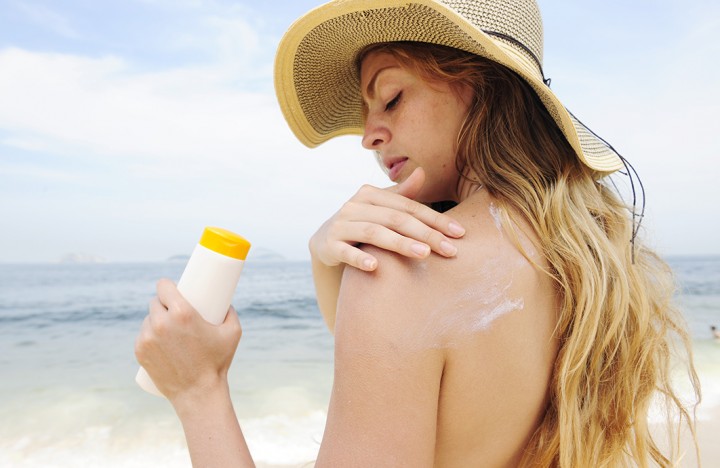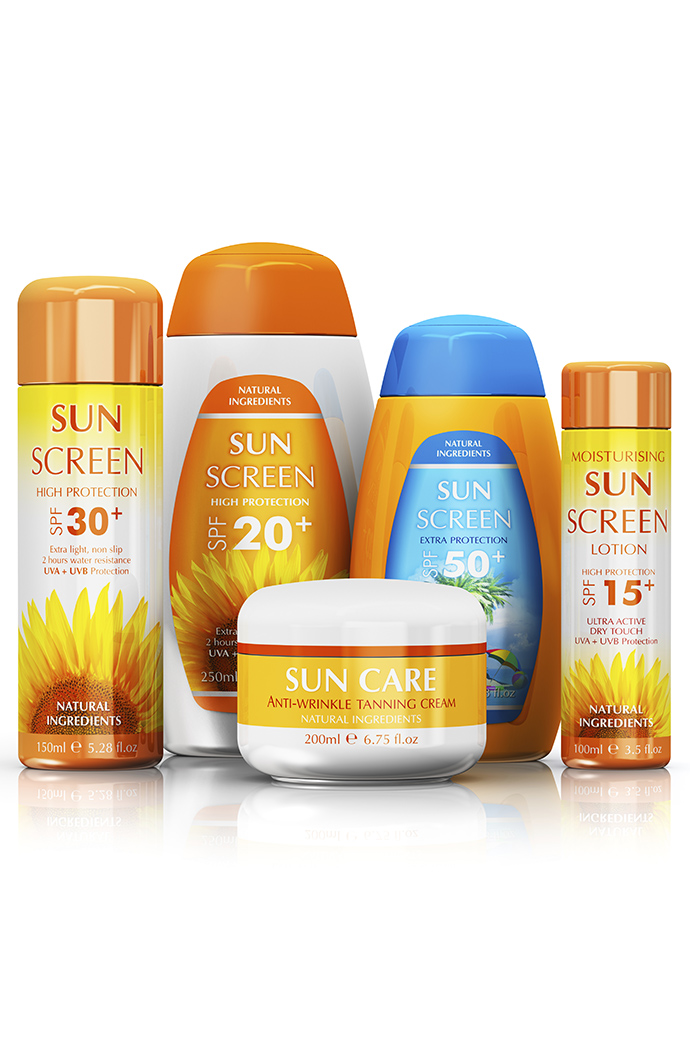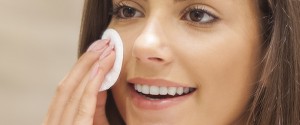Daily Sunscreen

Sunscreen is a type of lotion that reflects or absorbs some of the sun’s UV radiation on the skin when it is exposed to sunlight. Its main purpose is to protect against sunburn, which is caused by UVB rays. UVA rays, on the other hand, are associated with sagging, leathering, wrinkling, and other light-related aging effects. All sunscreens are given an SPF rating, which refers to their Sun Protection Factor. If it takes twenty minutes for your skin to start turning red in the sun, for example, lotion with an SPF of fifteen will cause the reddening to occur in fifteen times the amount of time. In this case, that’s five hours. You can also view the rating in terms of percentages. SPF 50, for example, keeps out 98% of incoming UVB rays. Regardless of the SPF rating, no sunscreen should be expected to be effective for longer than two hours. Therefore, it is important to reapply the lotion every couple of hours, particularly if you are planning on being out in the sun for an extended period of time.
Who is it good for?
Anyone who is older than six months and plans on being out in the sun should use sunscreen. In fact, even if you aren’t out in the sun, you may still want to apply sunscreen.
People who work inside, for example, can be exposed to UV radiation for periods of time, especially if they work near windows. Be wary of using too much sunscreen on children under the age of six months. Their skin is both extremely sensitive to the sun’s rays and to the chemical ingredients found in sunscreen. They should not be exposed to the sun for extended periods of time. Keep them indoors, in the shade, or cover them up in clothing if you must go outside for an extended length of time.
Compare
There are many different brands and types of sunscreen, which can make it difficult to know which one is the best, and which one is appropriate for various situations. It is important to consider how much exposure to the sun you are receiving. If you spend a lot of time outdoors or work outside, you will want to wear strong, water-resistant lotion, appropriate for the beach. This type of sunscreen is also good for when you play outdoor sports, because it is less likely to drip into your eyes when you sweat. For the most part, you should be fine with any lotion that has an SPF 15 rating. If you have fair skin, however, you may want to consider SPF 30 or higher. Look for special ingredients that will inform you on how good a sunscreen is at blocking UVA rays. Zinc ovide, sulisobenzone, titanium dioxide, oxybenzone, avobenzone, and ecamsule are all ingredients that excel at blocking harmful rays. For children, try to find a kid-friendly sunscreen by avoiding sunscreens with benzephenones and para-aminobenzoic acid. Children’s sunscreens can still be effective without ingredients that could potentially harm a child’s skin. To ensure you get enough protection, make sure you apply at least one ounce of sunscreen to your entire body. Make sure to apply it approximately thirty minutes before you expose your skin to the sun, and reapply it every couple of hours.





